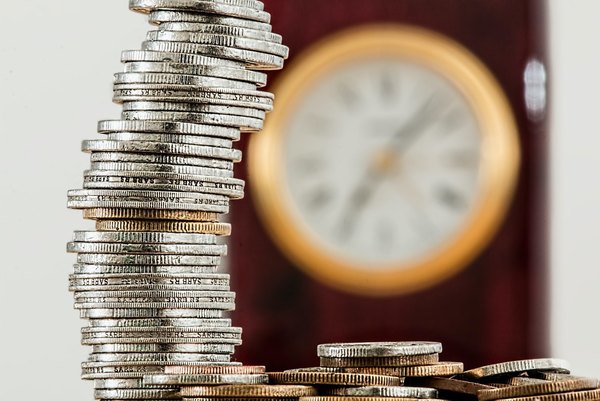If you don’t have a bank account and don’t carry cash, you may be wondering whether a prepaid debit card is a good choice for you.
If you’ve never used a prepaid card, you may have many questions. How do prepaid debit cards work? What are the benefits? Are there any drawbacks? It’s important to have all the facts before making your decision.
What is a Prepaid Debit Card?
A prepaid debit card is like a secured credit card. You load the card with money and use it like any other card. You can only spend what you have loaded onto the card, so it’s a great way to manage your money.
Prepaid debit cards are sometimes called:
- Pay-as-you-go cards
- Stored value cards
- General-purpose reloadable cards
The main difference between a prepaid debit card and regular debit card is that you don’t have to link to a checking account – although some allow you to do just this, if you like.
Many prepaid cards have a MasterCard, American Express or Visa logo. They look just like any other credit card. These cards can be used to buy items, pay bills, and even withdraw cash.
In fact, prepaid debit cards can usually be used online, not just in person.
How Do Prepaid Cards Work?
Prepaid cards are simple – once loaded with cash, they can be used like a regular debit card. There are many ways to reload these cards:
- Set up direct deposit
- Deposit a check at an ATM
- Load cash at a retailer
- Mobile check deposits
- Online transfers
Most companies that supply these cards will offer multiple reload options for your convenience.
Prepaid cards don't have a line of credit – once you’ve spent all the money on the card, you won’t be able to use it again until you add more.
Many cards will give you free access to ATMs in their network, but there may be limits to the amount of money you can withdraw. There may also be limits on how much you can spend or reload within a time period (usually 24 hours).
Reloadable cards have the same fraud and liability protections that regular debit cards have. Some cards have purchase protection, but proving unauthorized transactions can be difficult.
How Do You Get a Prepaid Card?
Prepaid debit cards can be bought from a retailer, such as a big-box store or drug store. Many financial institutions offer them as well.
Prepaid cards can also be bought online. Buying online can be risky unless you’re buying from a reputable company.
Who are Prepaid Debit Cards For?
Prepaid debit cards may be a good fit for people who need help budgeting, are on a fixed income, or have poor (or insufficient) credit history. Even if you have great credit, if you're someone who doesn't have (or want) a bank account, a prepaid card may be a necessity.
Prepaid cards can also be a great choice for teenagers receiving allowances.
The Benefits of Prepaid Cards
Prepaid, reloadable cards have quite a few benefits:
They’re Convenient
The biggest benefit to using a prepaid card is convenience. You don’t have to carry cash. These cards can be used just like any other debit card.
You Don’t Need a Bank Account
You don’t need to have an account with a bank or credit union to get a prepaid debit card. You can sometimes link your card to a bank account, but you don’t _have _to.
You Don’t Need Good Credit
Prepaid debit cards are easy to get. There are no credit checks involved. Just load the card with cash and use it to make purchases.
You Don’t Have to Worry About Bills
With a prepaid card, you can’t spend more than what you deposited. Because you’re not borrowing any money and only spending what you have, you don’t have to worry about monthly bills.
The Drawbacks
While there are many benefits to using a prepaid debit card, there are also some drawbacks that need to be considered.
Won’t Improve Your Credit Score
Preloadable cards generally won’t improve your credit score like a secured or unsecured credit card does. With a credit card, you borrow money. Credit cards charge transactions, and you promise to pay them back. How you repay the debt has a big impact on your credit score. Payments – late or on-time – are regularly reported to credit bureaus.
With a reloadable debit card, you’re not borrowing any money. Once you have spent all the money you loaded onto the card, you won’t be able to use it until you add more funds. Prepaid cards won’t show up on your credit report and won’t influence your credit history.
There are Fees
Most pay-as-you-go cards have fees attached. You may have to pay to:
- Activate the card
- Make purchases
- Use out-of-network ATMs
- Make deposits
Many prepaid cards also have monthly fees. Some will waive this fee if you meet certain conditions, like making direct deposits.
Most Cards Have Expiration Dates
Most pay-as-you-go cards have expiration dates. The loaded funds shouldn’t expire, but you will still have to wait for a new card to be issued before you can use it again.
Some people have had issues with their new cards not including their previous balance. Reaching out to the card issuer and explaining the problem usually resolves the issue.
Prepaid debit cards can be a great choice for some people, but they’re not right for everyone. Consider the pros and cons before making your decision.







